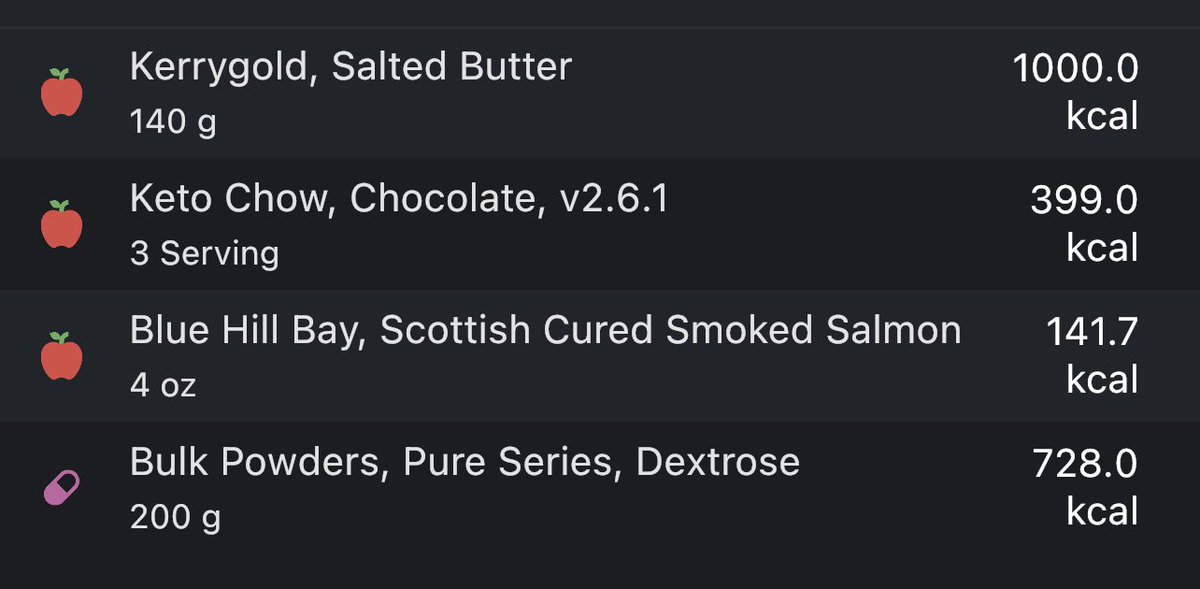
Four part true/false #poll, with an open question at the end…
1/ True or False
If someone said they get 35% or less of their fat calories from saturated fat, you would consider them on a “low saturated fat diet”
1/ True or False
If someone said they get 35% or less of their fat calories from saturated fat, you would consider them on a “low saturated fat diet”
2/ True or False
If someone said they get 10% or less of their fat calories from saturated fat, you would consider them on a “low saturated fat diet”
If someone said they get 10% or less of their fat calories from saturated fat, you would consider them on a “low saturated fat diet”
3/ True or False
If someone said they get 35% or less of their total calories from carbohydrates, you would consider them on a “low carb diet”
If someone said they get 35% or less of their total calories from carbohydrates, you would consider them on a “low carb diet”
4/ True or False
If someone said they get 10% or less of their total calories from carbohydrates, you would consider them on a “low carb diet”
If someone said they get 10% or less of their total calories from carbohydrates, you would consider them on a “low carb diet”
5/ If you answered 35% or less *should not* be considered “low” for saturated fat, but 35% or less *should* be considered “low” for a low carb diet — comment why you make this distinction… 🤔
• • •
Missing some Tweet in this thread? You can try to
force a refresh





